As a BetterHelp affiliate, we receive compensation from BetterHelp if you purchase products or services through the links provided
Sexual abuse in a relationship is a deeply complex and sensitive topic that often goes unnoticed or unaddressed. This abuse can occur in romantic and platonic relationships and is not limited to any specific gender, age, or background. It’s essential to have a conversation about sexual abuse to raise awareness and support those experiencing it in their own lives.
Understanding the realities of sexual violence, its effects on personal life, and the role that power and control play in abusive relationships is critical to helping victims. It’s also necessary to explore coping and healing strategies for survivors and recognize the importance of promoting consent, trust, and open communication within relationships. By addressing these issues, we can work together to raise awareness and challenge the cultural norms that may contribute to the prevalence of sexual abuse in relationships.
Key Takeaways
- Recognize the complexities and prevalence of sexual abuse in relationships
- Learn the consequences and challenges faced by survivors and the importance of consent and trust
- Engage with strategies for healing and breaking free while raising overall awareness about the issue in society
Understanding Sexual Abuse in a Relationship
Sexual abuse occurs when one partner uses coercion, manipulation, or force to engage in sexual acts without the other’s consent. It can occur in romantic relationships and involve intimate partners who love each other. Recognizing the signs of sexual abuse is critical to preventing further harm and seeking help.
You might feel confused and betrayed when someone you love and trust becomes abusive. However, it’s essential to remember that sexual abuse isn’t about love or desire but power and control. The abusive partner wants to dominate you, and they may use various tactics to achieve that, including anger, guilt-tripping, or threats.
Sometimes, technology can also be a tool for sexual abuse. For example, an abusive partner may share explicit photos without your permission or monitor your online activities. If your intimate partner exploits technology to control or manipulate you, protecting your privacy and seeking help is essential.
In addition to physical acts, sexual abuse can also involve emotional manipulation. An abusive partner might use affection as a weapon or withhold love and attention if you don’t comply with their desires. Remember that a healthy relationship should involve mutual respect and honest communication.
Here are some tips to protect yourself and deal with sexual abuse in a relationship:
- Maintain your support network, including friends and family.
- Don’t be afraid to set boundaries and express your needs.
- Seek professional help, such as a therapist or counselor.
- Document the abuse. Keep a journal or take screenshots as evidence.
- Reach out to domestic violence hotlines and organizations for guidance and assistance.
Ultimately, the most important thing to remember is that nobody has the right to control or harm you. Recognizing the signs of sexual abuse in a relationship is the first step towards regaining your freedom and healing.
The Realities of Sexual Violence
The Spectrum of Sexual Abuse
You may be aware that sexual violence covers many abusive behaviors. These include rape, sexual assault, and even subtle forms of harassment. It’s important to recognize that everyone’s experience is unique, and sexual violence can manifest differently for each individual.
- Rape
- Sexual assault
- Sexual harassment
- Unwanted sexual touching
- Forced oral sex
 Sexual Harassment: A Hidden Aspect of Abuse
Sexual Harassment: A Hidden Aspect of Abuse
Sexual harassment is often an overlooked element of sexual violence. It can occur anywhere, whether in your workplace or home life. Sometimes, it’s as simple as an inappropriate comment or lingering glance. Remember that comfort and safety come first; do not hesitate to call out such behavior.
- Inappropriate comments
- Unwanted attention
- Staring
Key takeaway: Sexual harassment is a subtle form of sexual violence that should.DependencyInjection_EMIT_REPEAT_Tis
Physical and Psychological Consequences
Physical Impacts of Sexual Abuse
The effects of sexual abuse in a relationship can be physical and psychological. Sometimes, it may manifest in visible injuries like bruises, cuts, or genital injuries. At times, these wounds may take a long time to heal, or they might even leave permanent scars.
- Physical injuries: The force used during incidents of sexual abuse can lead to injuries like cuts, bruises, or even broken bones.
- Genital injuries: It’s common for victims of sexual abuse to experience internal and external genital injuries, which can be extremely painful and, in some cases, lead to lasting complications.
Always remember you should prioritize your safety and well-being by seeking appropriate medical help when needed.
Mental Health Consequences of Sexually Abusive Relationships
Aside from the physical impacts of sexual abuse, it’s crucial to acknowledge and address the profound psychological consequences. The emotional turmoil can manifest in various ways and may require professional help to overcome.
- Depression: Feeling low or worthless is often experienced by survivors of sexual abuse, which can sometimes develop into a full-blown depressive episode.
- Anxiety: The fear and trauma from abusive situations can leave you feeling constantly on edge, leading to increased anxiety levels in your daily life.
- Post-traumatic stress disorder (PTSD): The distressing memories of abuse might trigger flashbacks, nightmares, or other symptoms associated with PTSD.
- Dissociation: Disconnecting mentally from the experience of abuse can often serve as a coping mechanism, but it can also interfere with your ability to navigate daily life and form meaningful connections with others.
Other mental health issues like self-harm tendencies and suicidal thoughts may also emerge due to sexual abuse. Hence, reaching out for help and support from trusted friends, family, or mental health professionals is crucial. Remember, you’re not alone; healing is possible, so give yourself enough time and care to recover.
 Victim’s Experiences and Challenges
Victim’s Experiences and Challenges
Surviving Sexual Abuse
Survivors of sexual abuse in relationships face immense emotional and psychological challenges. Healing from the trauma takes time, and it’s important to remember that it is a journey. You may experience various emotions, from anger and sadness to compassion for your abuser. It’s crucial to seek professional support and connect with other survivors, as it can greatly aid your recovery process. Surround yourself with people who care and understand.
Key takeaway: Seek support and take the time you need for healing.
Facing Confusion and Betrayal
Experiencing sexual abuse from a partner often leaves victims feeling bewildered and betrayed. You may question your own judgment and struggle with trusting others, even yourself. Recognize that these feelings are natural and part of the healing process. Remember, it can be helpful to talk with a therapist or counselor who can assist in guiding you through these difficult emotions.
Key takeaway: Acknowledge your feelings and work through them with the help of a professional.
Battling Shame and Stigma
Shame and stigma often accompany sexual abuse, making it difficult for victims to open up and share their experiences. Here are some tips to overcome these barriers:
- Understand that the abuse was not your fault.
- Share your story with people you trust and feel safe with.
- Encourage open dialogue to break the silence surrounding sexual abuse.
Key takeaway: Speak up and defy the shame and stigma of sexual abuse.
Triggers in Everyday Life
As a survivor, you might encounter various triggers – sights, sounds, or situations that remind you of your trauma. To cope effectively:
- Identify your triggers so you can anticipate and manage them better.
- Practice grounding techniques such as deep breathing, mindfulness, or physical exercises.
- Develop a support system with friends, family, or professionals who can help you during difficult moments.
Key takeaway: Understand your triggers and develop coping strategies for everyday life.
 Effects on Personal Life
Effects on Personal Life
The Influence on Intimacy and Passion
The experience of sexual abuse in a relationship can profoundly influence your ability to cultivate intimacy and passion with your partner or future partners. You might find it challenging to trust others and open up to vulnerability. Additionally, you may experience:
- Difficulty in expressing or receiving physical affection
- Aversion to, or fear of, certain sexual activities
- Anxiety or stress during intimate moments
- A decrease in sexual desire
Key takeaway: It’s essential to communicate your feelings and seek support to overcome these challenges and rebuild trust.
Effects on Pregnancy and Family
The impact of sexual abuse is not just limited to your personal life; it can also encompass pregnancy and family. The consequences on family and pregnancy include:
- Struggling with feelings of guilt or shame during pregnancy
- Harboring resentment toward unborn children
- Developing tension or conflicts with family members due to unresolved feelings or emotions
- Difficulty connecting or bonding with your child
Key takeaway: Seek therapy or counseling to address your emotions and work towards healing to support your family better.
Impact on Education and Employment
Surviving sexual abuse can impact various aspects of your life, including your education and employment. Some potential effects include:
- Struggling to focus on studies or job-related tasks
- Absenteeism or tardiness due to mental health concerns or appointments related to healing
- Difficulty in maintaining healthy relationships with colleagues or classmates
- Experiencing triggers or flashbacks in educational or professional environments
Key takeaway: Consider seeking accommodations or support at school or work as needed and prioritize self-care to cope with these challenges.
The Role of Power and Control
In a relationship, power and control play a significant role in sexual abuse. Understanding their dynamics can help you identify and address abusive patterns.
Abusers often manipulate power dynamics to exert control over their partners. They may use their strength, resources, or influence to dominate and coerce their victims. Powerlessness fuels their desire to assert control over others through tactics like intimidation, humiliation, and isolation.
Here are a few ways power and control can manifest in a relationship:
- Coercion: Pressuring you into sexual activities you’re uncomfortable with or using guilt to make you feel obligated to comply.
- Threats: Intimidating you with harm or retaliation if you refuse their sexual demands.
- Isolation: Controlling what you do, who you see, and where you go makes you more dependent on them.
- Emotional abuse: Insulting or belittling you to erode your self-esteem and make you feel undeserving of respect or love.
Recognizing these red flags can help you take action to protect yourself. Here are some strategies to counter power imbalance and regain control:
- Set boundaries: Be clear about your limits and communicate them assertively. If your partner doesn’t respect your boundaries, it’s a warning sign of a potentially abusive relationship.
- Cultivate support networks: Connect with friends, family, or support groups who can provide you with emotional strength during difficult times.
- Educate yourself: Learn about the dynamics of power and control in relationships so you can identify unhealthy patterns and seek help when needed.
- Reach out for help: If you feel powerless or unsafe in your relationship, don’t hesitate to contact a support organization or therapist who can guide you through breaking free from an abusive situation.
Remember, you deserve a relationship built on trust, respect, and equality. When power and control become the driving forces, it’s time to reevaluate the situation and take action.

Coping and Healing Strategies
Finding Social Support
One of the most important steps in coping with and healing from sexual abuse in a relationship is finding a strong social support system. Surround yourself with friends, family, and loved ones who can offer guidance, encouragement, and comfort. Equally important is attending support groups where you can meet others who have gone through similar experiences. Sharing your thoughts and emotions can be eye-opening and liberating. Remember, you’re not alone:
- Join local support groups or online forums.
- Confide in friends or loved ones who you trust.
- Consider talking to a counselor or therapist.
Key takeaway: A strong social support system can help you navigate the healing process with a sense of security and understanding.
Therapies Focused on Trauma
Trauma-focused therapies, such as psychotherapy, can be effective tools for coping and healing from sexual abuse in a relationship. These approaches aim to address the trauma head-on and provide you with coping skills to manage and overcome it:
- Cognitive Behavioral Therapy (CBT) can help you identify and change thought patterns related to the abuse.
- Eye Movement Desensitization and Reprocessing (EMDR) can assist in processing difficult memories and reduce their emotional impact.
- Somatic Experiencing can help you release the physical symptoms of trauma by focusing on bodily sensations.
You might want to explore different types of therapy to find a suitable one. Remember to be patient with yourself; healing is a journey.
Key takeaway: Trauma-focused therapies can be highly beneficial for developing coping skills and promoting healing from sexual abuse in a relationship.
Making Use of Hotlines and Support Services
Hotlines and support services can provide valuable assistance, guidance, and resources for those coping with and healing from sexual abuse in a relationship. Whether you need a friendly ear to listen or advice on how to find a therapist, reach out to these resources:
- National Sexual Assault Hotline: 1-800-656-HOPE (4673)
- The National Domestic Violence Hotline: 1-800-799-SAFE (7233)
- Use online directories to find local therapists and service providers specializing in trauma.
Practice self-compassion during your journey to recovery. Acknowledge your feelings and give yourself time to heal. Remember, you’re worth it.
Key takeaway: Hotlines and support services can offer immediate help and connect you with essential resources for coping and healing from sexual abuse in a relationship.
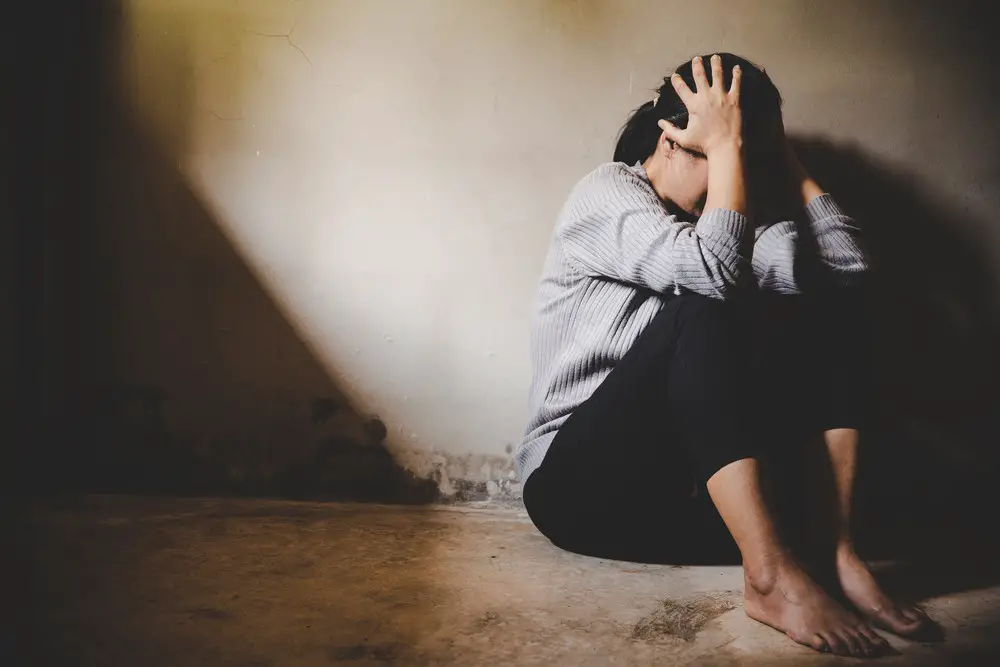
The Cycle of Abuse and Breaking Free
It can be challenging to recognize and break free from the cycle of abuse in a relationship. However, understanding the signs and taking initiative can help you escape such a situation. In this section, we’ll discuss domestic abuse, known as intimate partner violence (IPV), and provide tips for breaking the cycle.
The cycle of abuse typically follows four stages:
- Tension building: Anxiety and fear increase as the abuser’s behavior becomes more unpredictable and controlling.
- Explosion: The abusive partner unleashes physical or emotional violence, leaving you feeling fear, guilt, and helplessness.
- Honeymoon phase: After the explosion, the abuser apologizes, gives gifts, and promises change, creating a loving, caring atmosphere.
- Calm period: The relationship seems stable, but the cycle may repeat, progressing from tension building to explosion again.
To break free from this cycle, consider these strategies:
- Recognize the signs: Identify and acknowledge any physical or emotional abuse in your relationship.
- Create a safety plan: Establish escape routes, arrange a safe place to stay, and set up a code word to signal for help from a trusted friend or family member.
- Find support: Reach out to a helpline or local support group for confidential advice and resources.
- Hold your abuser accountable: Contact law enforcement and consider filing restraining orders or criminal complaints to handle the abusive situation.
Taking the steps to break the cycle involves courage and determination. Remember, you deserve to be treated with respect and love in a healthy, supportive relationship. It’s time to reclaim your safety and freedom.
Promoting Consent and Trust
In a healthy relationship, consent, and trust are crucial components. To ensure your partner feels safe and respected, follow these simple strategies:
- Communicate openly: Discuss your feelings, boundaries, and sexual desires with your partner. Clear and open communication helps build trust and prevent misunderstandings.
- Ask for consent: Before engaging in any sexual activity, ask for your partner’s consent. This shows respect for their boundaries and reduces the risk of entering non-consensual situations.
- Understand “no” means “no”: Stop immediately if your partner says no or seems reluctant. Respecting their decision strengthens trust and demonstrates your commitment to their comfort and well-being.
- Establish a safe word: A safe word allows both partners to express their discomfort or desire to stop without feeling judged or pressured. Choose a word or phrase that’s easy to remember and can be understood in the heat of the moment.
Here are some tips to develop a strong foundation of trust:
- Be honest and transparent about your feelings, fears, and past experiences.
- Actively listen to your partner’s concerns and validate their emotions.
- Keep your promises and be reliable to show you’re trustworthy.
- Give your partner space and respect their privacy.
By prioritizing consent and trust, you’re fostering a safe and supportive environment that encourages healthy sexual behavior and minimizes the chances of risky sex. Remember, when both partners feel comfortable and taken care of, the intimacy shared can be a beautiful and fulfilling experience.
Raising Awareness and the Role of Culture
Cultural influences are prominent in recognizing and addressing sexual abuse in relationships. Understanding how these elements intersect is essential to raising awareness about this critical issue. One way culture can impact the perception of sexual abuse is through traditional roles and expectations regarding masculinity. In some societies, it’s mistakenly believed that being a “strong” male means asserting dominance, including physically. Unfortunately, this notion can contribute to the normalization of abusive behavior.
Physical abuse is not the only form of sexual abuse in relationships. The spectrum of abuse also includes verbal, emotional, and psychological manipulation. To tackle this problem effectively, raising awareness involves educating people on the various manifestations of sexual abuse and empowering them to report these incidents.
Reporting sexual abuse is crucial in addressing the issue and ending the cycle of abuse. Encourage friends and loved ones to speak about their experiences and seek support from trusted sources, such as therapists or advocacy groups. Emphasize that disclosing incidents of abuse is a sign of strength, not weakness.
It’s essential to acknowledge culture’s role in shaping our understanding of sexual abuse. Challenge harmful stereotypes and traditional gender roles that perpetuate abuse and promote a more inclusive perspective that respects everyone’s boundaries and autonomy. This shift in collective consciousness goes a long way in creating a safer environment for all.
- Key takeaway: Cultural influences impact our awareness and understanding of sexual abuse. By challenging harmful beliefs and promoting open communication, we can work towards ending the cycle of abuse in relationships.
 ? Breaking Silence: When Therapy Becomes Essential
? Breaking Silence: When Therapy Becomes Essential
The aftermath of experiencing sexual abuse in a relationship often leads to emotional and psychological scars that need professional attention. Recognizing when therapy may be needed is crucial, so keep an eye out for the following signs:
- Persistent Emotional Turmoil: Feelings of sadness, anger, or anxiety that won’t go away, affecting your daily life.
- Trust Issues: An inability to trust people, even those you used to feel close to, strains personal relationships.
- Flashbacks and Nightmares: Recurring thoughts or vivid dreams about the abuse interrupting your sense of well-being.
- Avoidance: Skipping activities or places that remind you of the abuse or the abuser impacts your freedom and mental health.
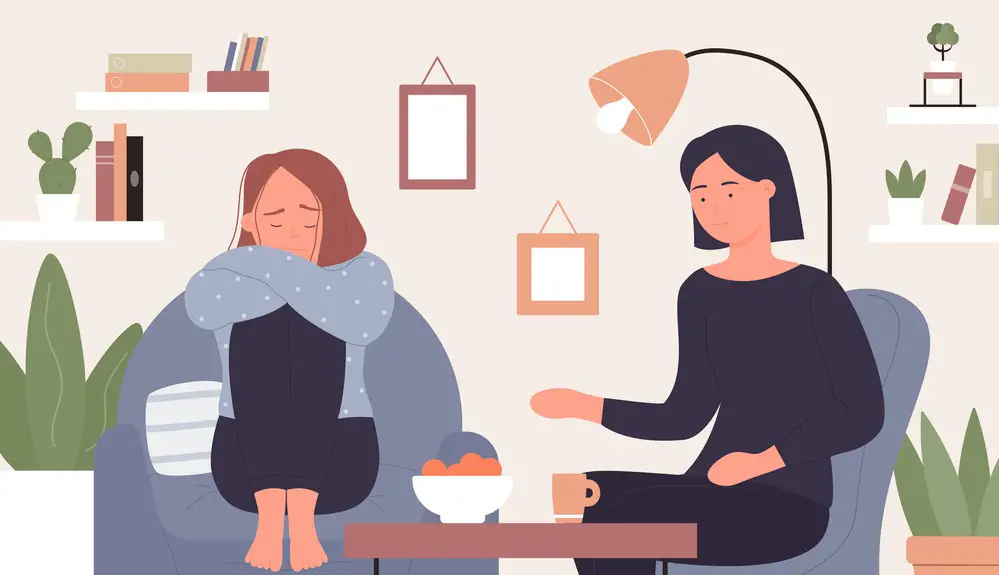
? Navigating the Healing Path: Goals for Therapy
Setting goals is a part of any healing journey, especially involving something as complex as sexual abuse in a relationship. Here are some therapy objectives tailored to survivors:
- Identify and Challenge Harmful Beliefs: Work on recognizing detrimental thought patterns holding you back.
- Build Healthy Boundaries: Learn how to establish physical and emotional boundaries to protect your well-being.
- Regain Control: Understand how the abuse was about power and control, and work towards reclaiming your agency.
- Develop Coping Mechanisms: Learn healthy ways to manage stress and emotional pain.
? The Light at the End: Recognizing Signs of Progress
Progress may be gradual, but every step forward is a victory. Below are some indicators that you’re making headway:
- Improved Emotional Balance: Less frequent mood swings or bouts of intense emotions.
- Enhanced Self-Esteem: Growing more comfortable in your skin and feeling empowered.
- Strengthened Relationships: Relationships improve as you work on trust and emotional availability.
- Revived Interest in Activities: The return of enthusiasm for activities you once loved but had abandoned due to the trauma.
Each step forward is a testament to your resilience. And remember, it’s okay to ask for help; you don’t have to walk this path alone.
Frequently Asked Questions

What are the signs of sexual manipulation?
Sexual manipulation may show up in different ways in a relationship, but some key signs are:
- Persistent pressure for sex, even after knowing you’re not comfortable.
- Ignoring your boundaries and using guilt, threats, or other tactics to force you into sexual acts.
- Encouraging drug or alcohol consumption to reduce your inhibitions and make you more amenable to sex.
Remember, trust your instincts when it comes to feeling manipulated.
How can someone identify sexual abuse in relationships?
Some common signs of sexual abuse in relationships include:
- Persistent unwanted touching or groping.
- Being coerced into sex by force, threats, or manipulation.
- Feeling fear or shame when discussing sexual boundaries.
Always prioritize your safety and self-worth.
What are the common forms of sexual abuse?
Sexual abuse may take various forms, such as:
- Verbal abuse or derogatory comments regarding your body or sexuality.
- Non-consensual sharing of intimate photos or videos.
- Forced or coerced participation in unwanted sexual acts.
Never hesitate to seek help in such situations.
How does sexual abuse progress in stages?
Sexual abuse can escalate incrementally, starting with subtle actions and gradually progressing to more overt abuse. It may follow these stages:
- Boundary testing, where the abuser observes your reaction to inappropriate behavior.
- Shifts to manipulation or coercion, using tactics to convince you to engage in sexual acts.
- Escalation to more severe acts of abuse, like coercion, force, or violence.
Stay vigilant for warning signs at any stage.
How can one protect themselves from sexual abuse in a relationship?
To protect yourself from sexual abuse, it’s crucial to:
- Set and communicate clear boundaries in your relationship.
- Trust your instincts and avoid dismissing red flags.
- Seek support from friends, family, or professionals when needed.
Taking these proactive steps can help you maintain a healthy relationship.
What steps can be taken if experiencing sexual abuse in a relationship?
If you are experiencing sexual abuse, consider the following:
- Contact a trusted friend, family member, or professional for help and support.
- Document any incidents or evidence of abuse.
- Assess your safety and develop a plan to leave the situation if necessary.
Remember, you deserve respect, support, and love in your relationships.

? Drawing the Line: The Importance of Boundaries in the Aftermath of Sexual Abuse ?
Let’s dive into something crucial yet often overlooked: boundaries. In relationships—especially those where the dark cloud of sexual abuse looms—establishing clear emotional boundaries is non-negotiable. But here’s the tricky part: you can’t set effective boundaries without first respecting yourself.
? Boosting Self-Confidence for Boundaries A self-assured you are more likely to stand your ground, setting limits that protect your emotional and physical well-being. Yet, self-confidence isn’t built overnight; it requires patience, work, and a lot of self-awareness.
? The Power of Saying “No” Having a hard time saying “no”? You’re not alone. Many struggle with this because they subconsciously place others’ needs above theirs. But guess what? Once you master the art of polite refusal, you’re halfway to setting healthier boundaries.
? Mental Health and Boundaries People dealing with certain mental health issues—like Borderline Personality Disorder—may find it especially tough to set boundaries due to a blurred self-image. However, this doesn’t mean they can’t work on it and improve.
?️ Talk it Out with a Therapist. If you’re grappling with boundary issues, consider speaking with a therapist. They’re trained to help you understand why you struggle with setting limits and how to get better at it.
? A Must-Watch: Video on Boundaries Seriously, if this resonates with you, check out this video about setting and respecting boundaries. It’s an eye-opener and could be the first step in your journey toward establishing healthier relationships and healing from sexual abuse.
Healthy boundaries are essential in all relationships but are paramount when navigating the after-effects of abuse. A good set of boundaries acts like emotional armor, shielding you while enabling you to engage meaningfully with others. So, draw that line. You owe it to yourself.
 ? Overcoming Darkness: The Journey of Jacob Maslow ?
? Overcoming Darkness: The Journey of Jacob Maslow ?
Hello there, I’m Jacob Maslow, and my life story serves as a testament to the resilience we can muster when faced with challenging situations. Navigating the complexities of a broken family dynamic has given me a front-row seat to the highs and lows of human behavior. My experience with my ex, who suffers from severe narcissism, has been a rollercoaster of court battles, smear campaigns, and emotional turmoil, especially regarding our children’s custody.
While therapy has always been a refuge for me, my ex decided to discontinue reunification therapy just when things started to look up. It’s been a rough patch, but I found solace in taking Lexapro and embarking on a fresh therapeutic journey with BetterHelp.
?♂️ Walking is my go-to therapy on days when the world gets too loud. Every step I take clears my head and helps me think of new ways to reconnect with my children, with whom I had a strong bond until our family took this unfortunate turn.
✒️ Writing has been another lifeline for me. I pen articles to help people untangle the emotional knots tied by living with a narcissistic partner or battling mental health issues. Believe me when I say you’re stronger than you think, and you can overcome your mental hurdles.
⚖️ But I don’t stop at articles; I also run a legal site where I guide those sailing in the same rough seas of non-compliant spouses and complex custody battles. Because when the legal system becomes a labyrinth, you need all the help you can get.
? Resilience is not just about surviving; it’s about thriving amid adversity. With every article I write, every walk I take, and every therapy session I attend, I come one step closer to that goal. And so can you.
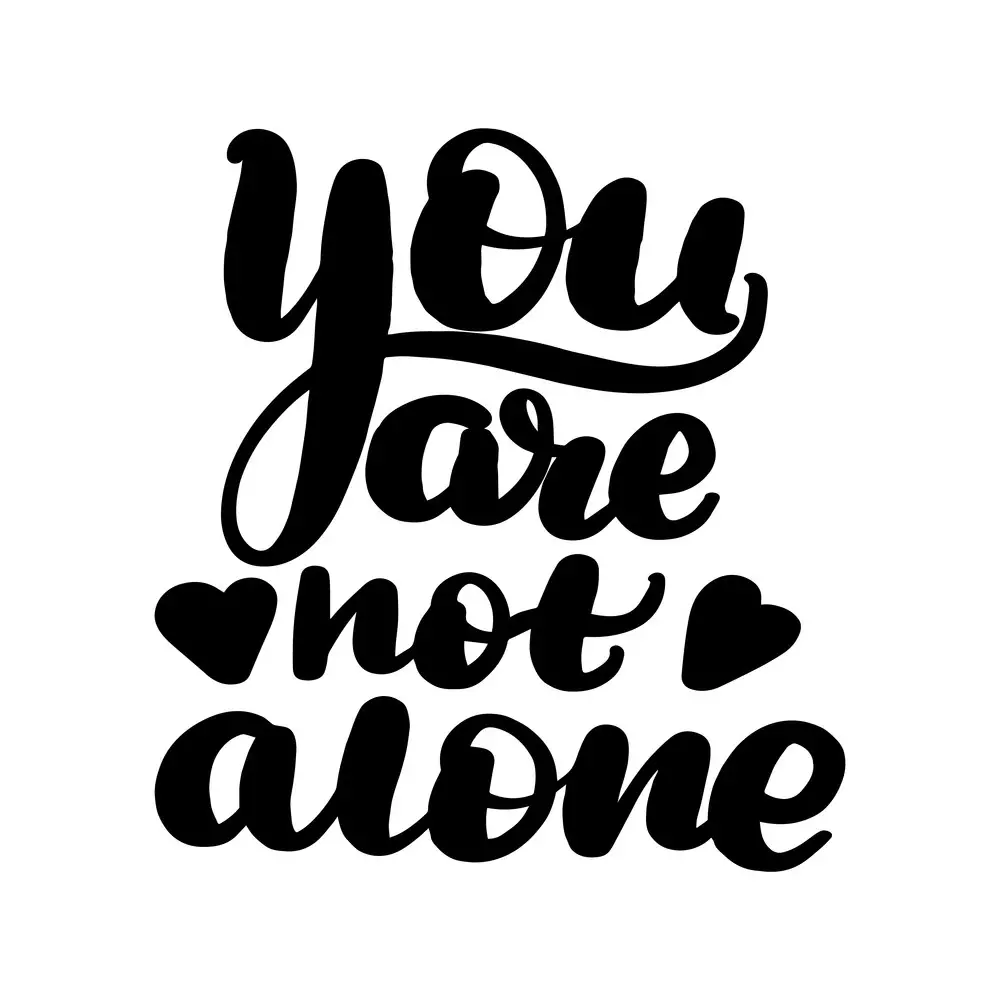
- Breaking the Silence: Why Men’s Mental Health Matters More Than Ever - April 15, 2025
- How to Transform a Home’s Patio Space into a Relaxing Space - March 23, 2025
- 5 Strategies to Use a Cell Phone to Help Manage Your Stress - March 23, 2025
This site contains affiliate links to products. We will receive a commission for purchases made through these links.


 Sexual Harassment: A Hidden Aspect of Abuse
Sexual Harassment: A Hidden Aspect of Abuse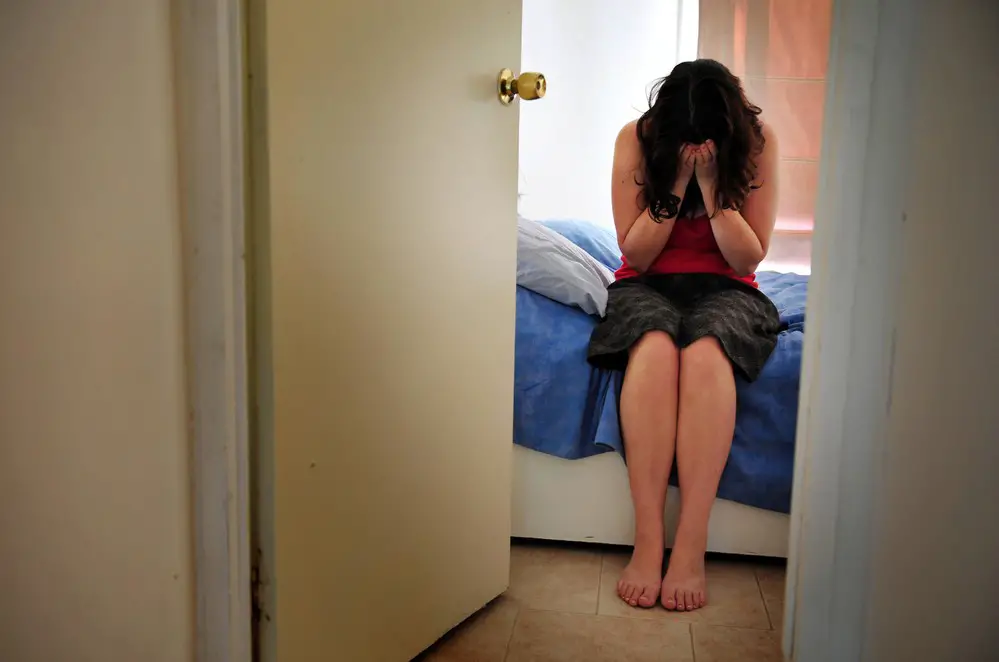 Victim’s Experiences and Challenges
Victim’s Experiences and Challenges Effects on Personal Life
Effects on Personal Life ? Breaking Silence: When Therapy Becomes Essential
? Breaking Silence: When Therapy Becomes Essential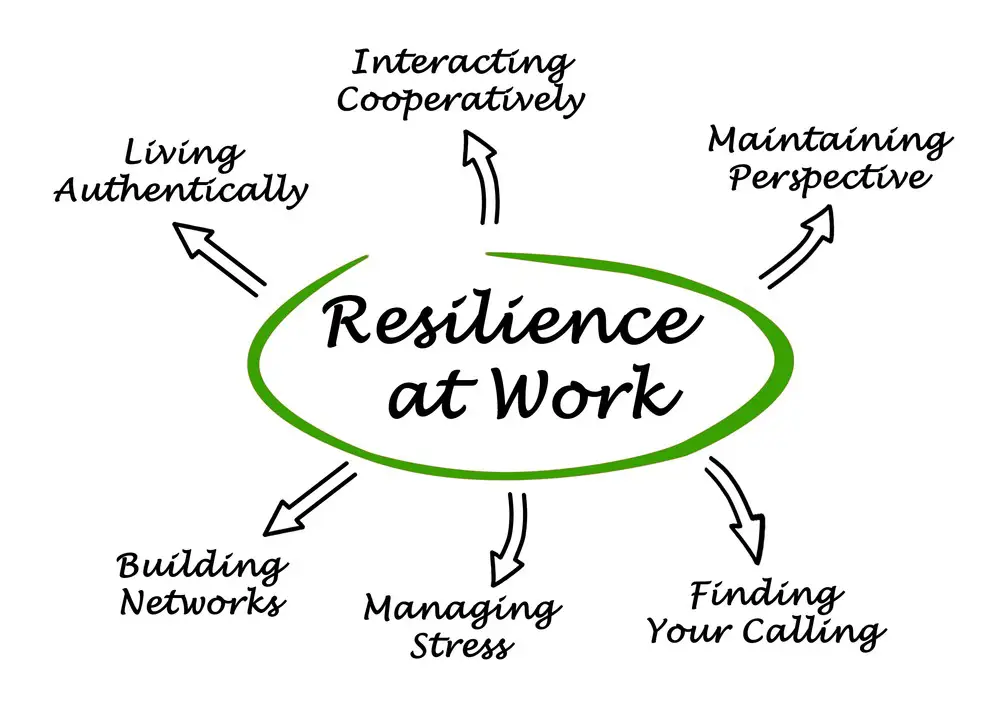 ? Overcoming Darkness: The Journey of Jacob Maslow ?
? Overcoming Darkness: The Journey of Jacob Maslow ?
